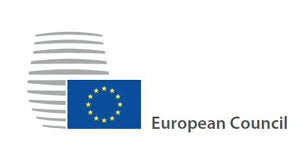In a new report published today, the Council of Europe’s Group of Experts on Action against Trafficking in Human Beings (GRETA) assesses developments since the publication of GRETA’s first evaluation report on Azerbaijan in May 2014 as regards the implementation of the Council of Europe’s Convention on Action against Trafficking in Human Beings.
GRETA welcomes progress made in some areas, in particular amending legislation, training relevant professionals, raising awareness of human trafficking and amending the rules for the identification of victims of trafficking and their referral to assistance.
However, GRETA notes that some issues continue to give rise to concern. GRETA urges the Azerbaijani authorities to take measures to prevent trafficking for the purpose of labour exploitation, by reintroducing workplace inspections by labour inspectors and strengthening their mandate, regulating and monitoring the functioning of recruitment and temporary work agencies, and reviewing the regulatory system concerning domestic workers. Efforts to proactively identify victims of trafficking for the purpose of labour exploitation, in particular in construction, agriculture and domestic work, should be increased.
GRETA also urges the authorities to improve the protection of children in vulnerable situations, strengthen the prevention of early and forced marriages, ensure that all children are registered at birth, and improve the identification and referral to assistance of child victims of trafficking.
More generally, GRETA calls on the authorities to ensure that victims of trafficking in human beings are identified as such, regardless of the presumed victim’s co-operation in the investigation. Other recommendations made by GRETA concern access to compensation for victims of trafficking and removing the restrictions as regards which lawyers can provide legal assistance to victims.
GRETA stresses that all crimes related to human trafficking must be proactively investigated, including through financial investigations, promptly and effectively prosecuted, and lead to proportionate and dissuasive sanctions. More attention should be paid to protecting victims and witnesses from retaliation and intimidation during the investigation and court proceedings.
Furthermore, NGOs engaged in anti-trafficking work should have effective access to adequate funding and be able to participate in prevention activities and victim protection and assistance.
According to statistics provided by the authorities, Azerbaijan is primarily a country of origin of victims of trafficking in human beings and to some extent also a country of destination. The number of identified victims from 2014 to 2017 was 258. In addition, there were 81 presumed victims of trafficking identified on reasonable grounds from 2014 to May 2017. About 95% of the officially identified victims were women trafficked for the purpose of sexual exploitation, while all male victims were trafficked for the purpose of labour exploitation. Only two children were identified as victims of trafficking during the period. The vast majority of the identified victims were Azerbaijani citizens exploited abroad, primarily in the Russian Federation, Turkey, the United Arab Emirates, Malaysia and Pakistan. As regards foreign victims exploited in Azerbaijan, there were five from Uzbekistan, four from the Russian Federation, two from Ukraine, one from China and one from Turkmenistan. GRETA notes that the scale of human trafficking in Azerbaijan is probably higher than the official figures suggest, due to certain shortcomings of the identification procedure and insufficient attention to internal trafficking.


























































